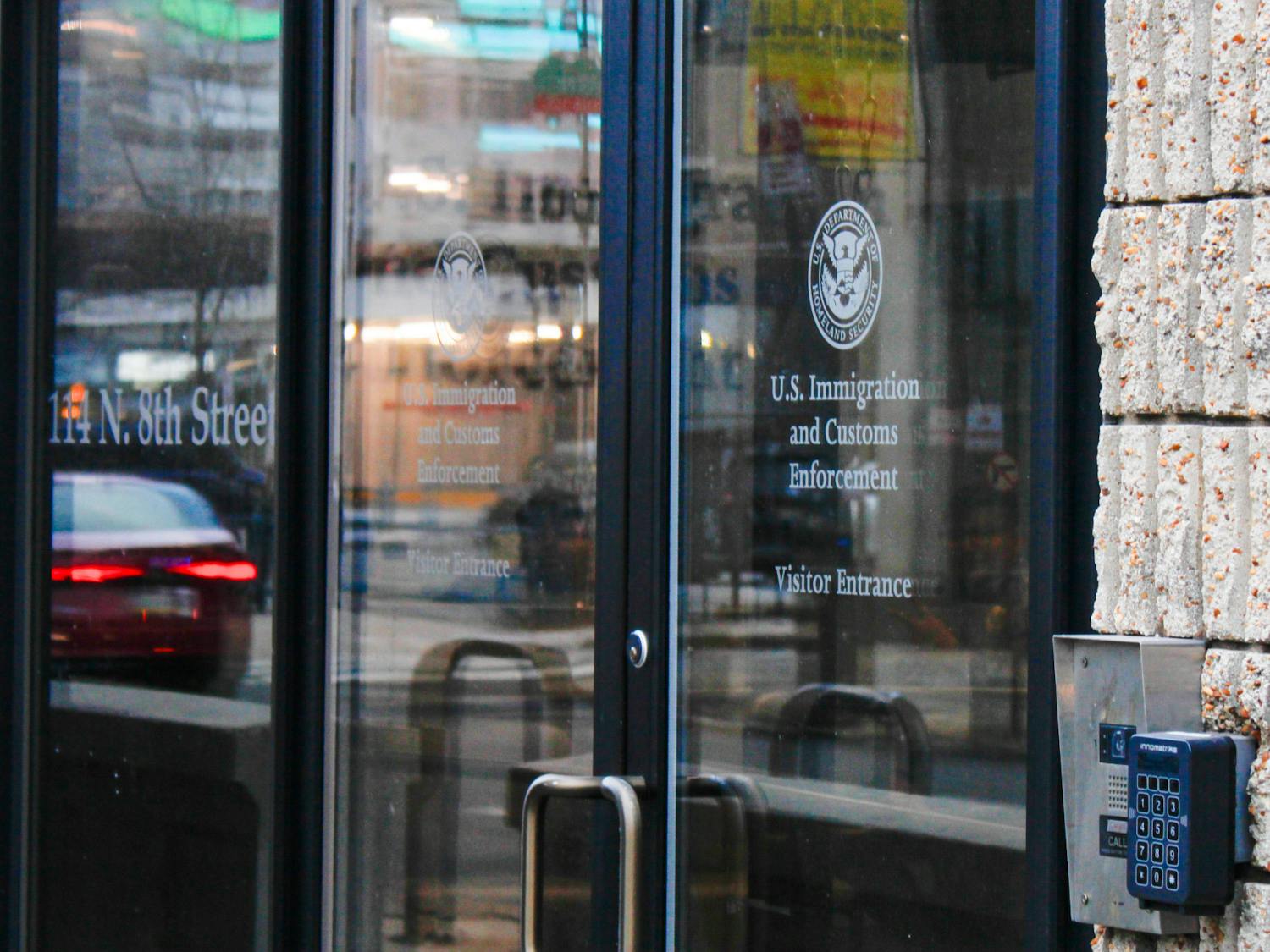On June 20, 2005, Wafa al-Biss attempted to smuggle an explosives belt into Israel from Gaza through the Erez crossing. Her intent? To kill 40 or 50 people, especially as many young people as possible. Her destination? Be’er Sheva’s Soroka Medical Center, where Israeli doctors had cured her of massive burns incurred in a cooking accident. Fortunately, Israelis soldiers at a checkpoint foiled her murderous scheme.
This incident is just one of the many facts that Penn For Palestine intentionally omits in its demonstration. Once again, they immaturely present a complex issue in isolation, without any context whatsoever. In the spirit of The Daily Pennsylvanian Opinion Board’s laudable call for “less rhetoric and more engaged dialogue,” I will reiterate my personal invitation for frank and open discussion with anyone who wishes. To PFP I say: enough with the gimmicks. Let’s take a minute and think this through.
The context that PFP consciously omitted is why the “wall” — more accurately, a security fence — was erected in the first place and why it is still necessary.
Israel built a security barrier for one reason — to prevent Palestinian terrorists from infiltrating Israel.
For years, Palestinian suicide bombers wreaked carnage in Israel, murdering nearly 1,000 civilians in cold blood. For years, Israelis were terrorized, their normal lives on hiatus. For years, teenagers could not go to a bar without taking their lives in their hands, lest they join the fate of the 21 teenagers slaughtered by a terrorist at the beachside Dolphinarium dance club. For years, families could not eat at now-empty restaurants, after countless loved ones — unlucky enough that a suicide bomber also chose the same cafe — never returned from lunch. For years, parents could not say goodbye to their children without imagining the worst: that this goodbye would be their last, that their child’s bus would, like many other school buses, be incinerated by Palestinian terrorists, that the only remnant of their child would be the bus’ charred, smoking hulk.
Like any sensible government (think: post-9/11 U.S.), the Israeli government’s primary responsibility was to protect its citizens’ security and safety. In order to thwart suicide bombers and other terrorists, Israel erected a security barrier — consisting of a fence and checkpoints — between the Palestinian territories and Israel. The security fence is exactly that: a wire fence providing security. Only five percent of fence was constructed from concrete, in order to prevent the unnecessary destruction of homes in areas of high population density.
Has the Israeli security barrier been successful? Absolutely. The data are self-evident: In 2002, the year before construction started, 457 Israelis were murdered. In 2009, eight Israelis were killed. Suicide bombers are now a thing of the past.
Of course, Israel must be cognizant of the personal hardship of those who go through its checkpoints. In fact, the Supreme Court overruled the army in order to minimize the barrier’s inconvenience while still retaining their efficacy. I do not know of a country with such a comparable decision. Even so, checkpoints are rough business for all involved.
I can tell you because I’ve been there. I’ve seen the checkpoints — both sides of them. I’ve spoken to both Palestinians and Israelis. I’m not sure who wants to be there less: the Palestinian farmworker waiting in line and trying only to provide for his family, or the 19-year-old Israeli soldier, whose decision to re-check a suspicious car literally determines life and death. I do not deny that checkpoints and the barrier are inconvenient. But inconvenience cannot outweigh saving human life on any scale of justice and morality.
Nowadays, civilian life in Israel has seemingly returned to normal, but not because no terrorists attempt to sneak past the security fence; in fact, the opposite holds true. Although the media do not report it, the security barrier still thwarts hundreds of terrorists trying to murder Israeli civilians.
The day that there is not a credible threat to Israeli civilian life, the day that removing checkpoints would not tantamount to suicide, the day that Israel’s enemies lay down their arms — on that day, Israel will beat its security barrier into plowshares and its fence into pruning hooks. I long for the day when the checkpoints will be dismantled, when the entire security barrier — which is topped by hooks for facile disassembly — is ferried away by helicopters, when a lasting peace finally dispels the specter of terrorism.
That day, I fear, is far in the future. When Wafa al-Biss was recently released in the Gilad Shalit prisoner swap, she urged Gazan schoolchildren to follow her example, saying “I hope you will walk the same path we took and God willing, we will see some of you as martyrs.”
Until the day of peace comes, Israel has the moral responsibility to protect its citizens. And if the security barrier is necessary to stop every Wafa al-Biss, so be it.
Shlomo Klapper is a College freshman. His email address is sklapper@sas.upenn.edu.








